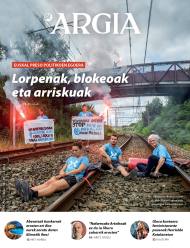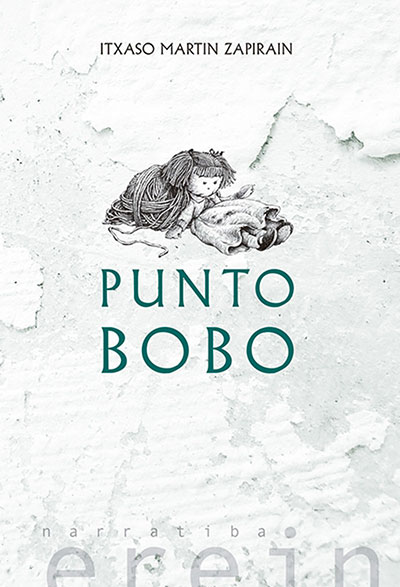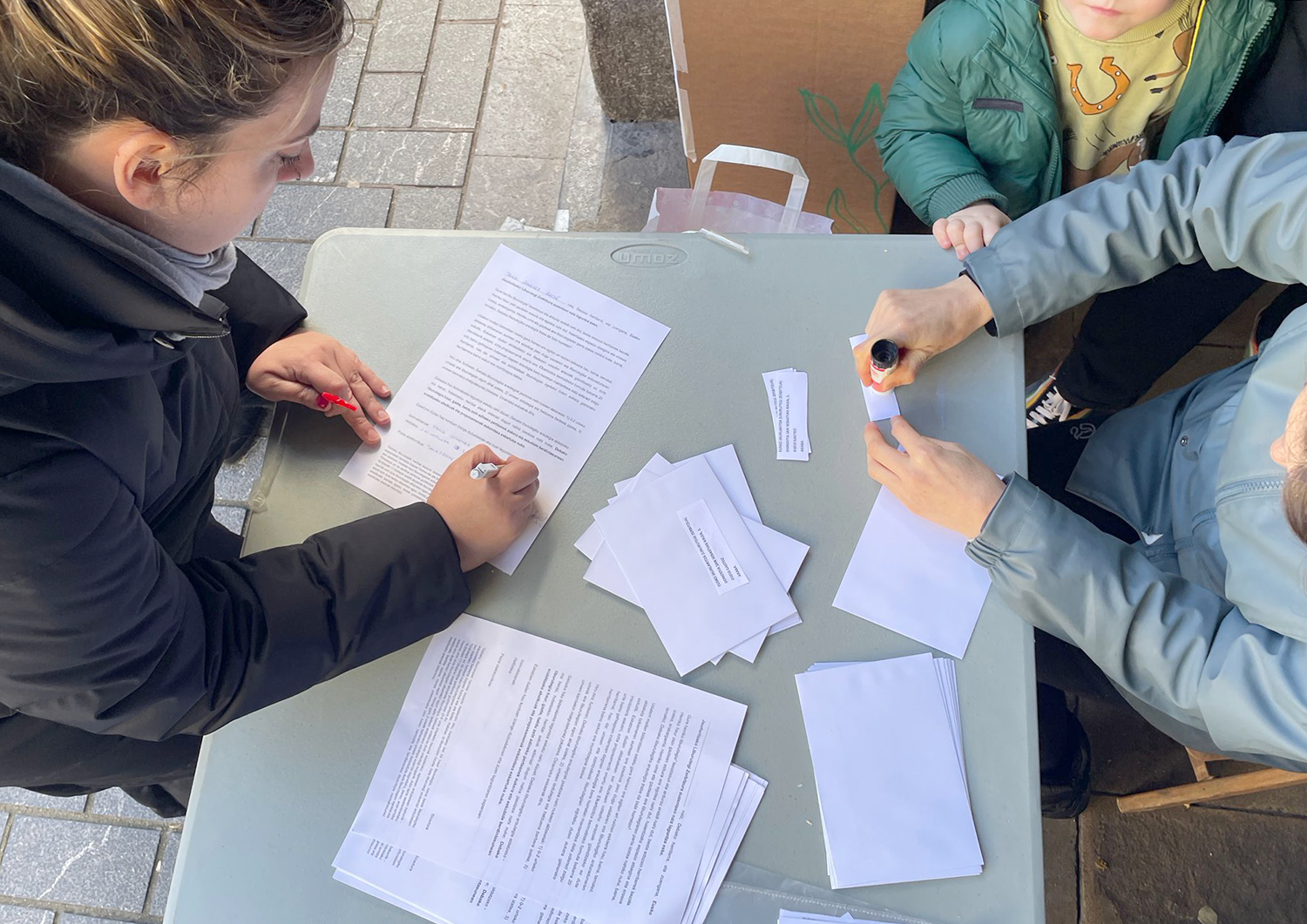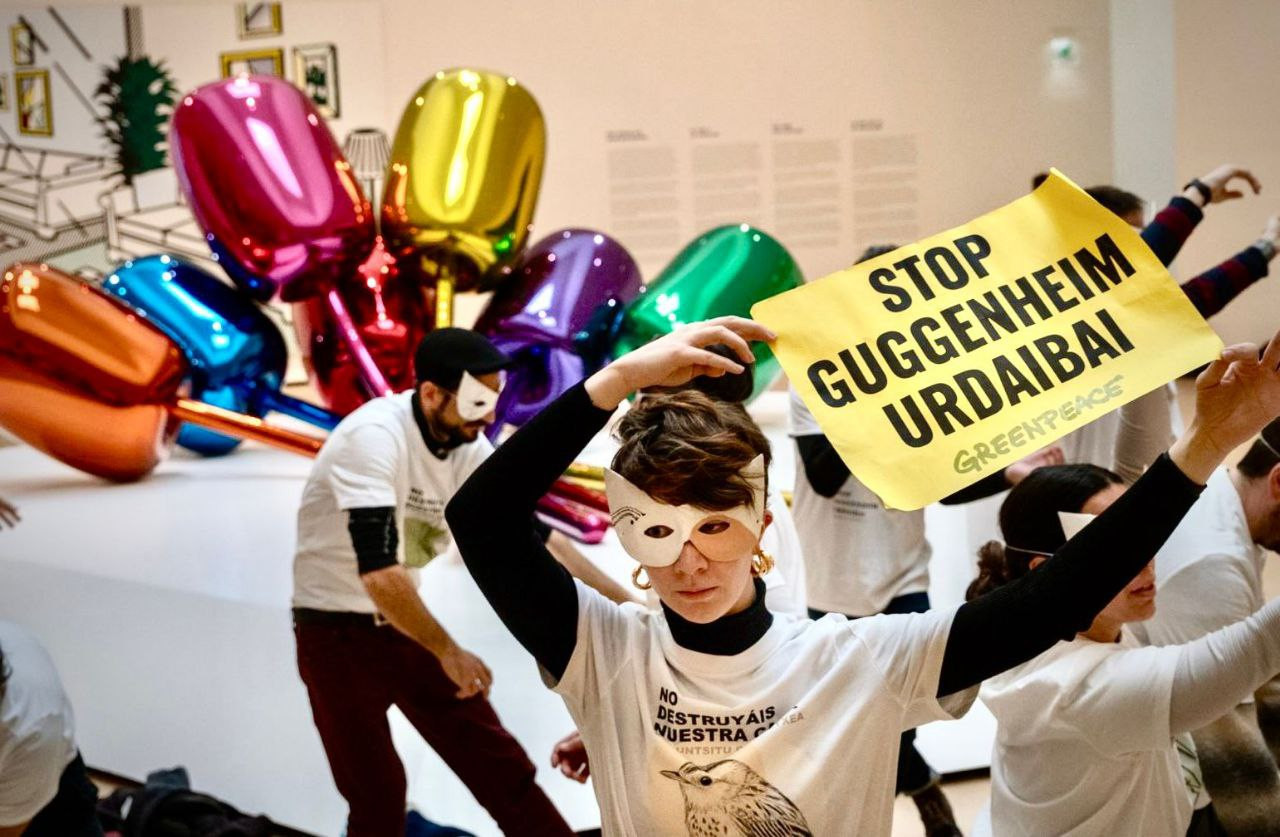The feminist gloss is possible
- Oral improvisation is a long-standing practice in different parts of the world and tensions occur in the process of updating tradition. Catalan glossers are organizing improvisation game rules to adapt to non-hegemonic bodies and voices. They want to transform the movement that they are part of, while still being part of the movement. We've talked to Berta Llos and Aurora Brullet.

The glosa is an improvised song in Catalan. The tradition was almost lost until, by the year 2000, several agents began the recovery. Known tones were identified in each territory and all variants were unified in the same flow: Glosa de Menorca and Mallorca, Peruetas de Montanissell, garrotinas de Lleida, jotas del Ebro, nyacresas and patacadesas de l’Empordà, romançosas de los islas, corrandas de uno y uno… the generic “Glosa” now gathers all improvised Catalan singing.
Many eyes on top
At the beginning of the century they also began to exhibit improvised singing in Catalan schools, in the belief that it could be beneficial to work orality. Berta Llos (Torroella de Montgrí, 1994) met the glossary with a professor: “He was very passionate, even improvised, and from his hand we loved a group of teenagers.” They participated in various meetings between students and, after finishing high school, transferred the teachers to Espolla, “where the true glossators meet”. They were the first young people who sang in Espolla, “but from that group I only lost myself, the others left him.” The following year he returned to Llos Espolla, where he only sang: “Who is that young woman who improvises so well?” she sounded.
The label of the young promise recognizes in the back that he lived conditioned by admiration: “I was improvising with my elders, I had to give level!” But the pressure beat him “I exploded and fled a glossary and went to live in Barcelona.” He came back years later, more mature and internalized feminist discourse. He discovered that his reading had changed and the advice he was given: “Until then they told me I had to improve the technique, which could be very good. When I was back perfecting the technique, they told me that I had to measure words, that with messages to walk carefully, that if I sang ‘just with feminism’ I would never win the contest.”
Out of tradition
Another thing has been the trajectory of Aurora Brullet (Sant Quirze del Vallés, 1989), who knew the gloss in social militancy: “In the village we had a CSA, a self-managed social center, and its three members were very amateur. They participated in the Sabadell garrotinas competition and we also programmed in the CSA. The first time I saw people improvising in bar, mounting or cleaning: 30 or 40 people in conversation. I was fascinated by this form of communication. I have not known the gloss of tradition, for me it has not been linked to customs and practice of long roots until I arrived in Menorca.”
Berta Llos: "When I was back perfecting the technique, they told me that I had to measure the words, that with messages to walk carefully, that if I sang ‘just with feminism’ I would never win the contest."
Although he was born in Catalonia, Brullet considers himself a Menorcan glotor, where he has lived since the age of twenty, where he has been socialized as a glotor: “It was a great shock to enter the world of the glossary of Menorca, a practice deeply rooted in tradition, linked to local rural life, where the ancient references have a lot of weight. The glotor is supposed to be a way of using the voice, a concrete life and a complete imaginary. This image, until the 1980s, was completely linked to the rural environment and the bar environment. The glotor was man, the smoker, the drinker, the strong body, the hard skin, the beard… This essentialist idea, in part, is still alive. In the glosajones of Menorca is repeated a lot: ‘one thing is to know how to gloss and another to be gloss’. For many, Brullet is a feminist who knows how to make gloss.
For Berta, in the case of Aurora, the penalty for feminist is evident: “I don’t feel that my messages in Catalonia ‘take away’ the sessions. Here everything seems to be more progressive, but only apparently; as Mireia Domènech said the other day, in Catalonia we are in the era of ‘sympathetic violence’.
Hunger for learning
Aurora Brullet and Berta Llos have felt the lack of continuous gloss training, largely self-taught: “At school we acted very informally, we started together singing and playing. We didn’t know how it was studied, we didn’t know that it could be learned,” says Llos, “until I was 16 and 22 years old, except for the summer week class of Espolla, I had never “learned” in full. When he was called to sing in a real performance, he felt the need to take classes: “I never thought I was a real gloater!”
Brullet also felt thirsty for training: “In Menorca I did not find informal improvisation spaces. In Sant Quirz I had sung some daring, some intuition. But here wasn't that place, and I thought, “If I have to board the table I will have to study!” But there is no possibility of continuing education.”
Many glossaries currently improvising in Menorca studied two decades ago with Master Miquel Ametller. Brullet sees lights and shadows in this stream: “On the one hand, I feel a lot of admiration for the work done by Ametller, who for a decade generated various courses and improvisation spaces. But everyone who received this training learned their model. He decided who was able to go onstage and who wasn't. There was no tablated that passed through this man’s hands.” Those who studied with Ametller had the opportunity to receive continuing education and, according to Brullet, obtained a “validation card” for tablates, which is still weighed: “That historic moment marked social valuation.”
.jpg)
“Whoever thinks he knows…
… you can’t know more,” Bertsolari Maialen Lujanbio sang. The summer school of Espolla is the main meeting point and formation of this glossary. Several courses, workshops and demonstrations are held annually, as well as a tournament. This year it has also been used for the presentation of the group of women from the gloss world, Nyàmeres.
Five men and 30 women enrolled in school. Asked why this difference is so, “men believe they are already sufficiently trained,” they say, “on the contrary, most women feel that we still have a lot to learn.” There are three levels at school: that of beginners, that of transactional and that of experts, and each one is placed anywhere. “Kuriously, none of the five men were in the group of beginners. There were two who were in their first year, and one of them went directly to the expert group. It took me six years to go to this team!” says Berta Llos, “all the women who were in their first year registered at the lowest level. In the group of beginners they were all women.” Most of the professors were men, highly prestigious references in the glossary world.
The presentation of the Nyàmeres group was not part of the official programme: “We did it as a desk, not as a class or workshop within the school, it was an appendix.” None of the three male professors in the expert category were present: “One disappeared, among others, and the third, the ‘father of the lexicon’ of today, was taking care of the child, listening to everything but not participating,” Llos regrets, “but when we finished the session he came to me and said to me jokingly, ‘with care of Nyàmeres, huh? See how far you go to destabilize the world of the glossary!’
Men explain things to me
At the Nyàmeres meeting, the members of the group presented guidelines for creating safer spaces: “Consensual strategies for the distribution of the word and space, related to the care of volume and tone… The proposal was very successful”. But as Ane Labaka in his article “Our Parents” or Rebecca Solnitek in Men Explain Things to Me, Llos found the tutoring: “At the end of our meeting we had a workshop with a prestigious teacher and, as soon as possible, our proposal defied and said to your feminist intention: ‘The proposal has been very good, it is called glossary management’. He told us indirectly that we did not contribute anything new.” More has also happened to them: “We in the Nyàmeres group are thinking about what spaces we can create to make other kinds of gloss possible, because we believe that changing the context would be much better. When we share this reflection with men we are told that we are wrong, that we have to adapt to any topic and context, that they have very different themes and take them wherever they want.”
Even before the celebration of the Glosa de vins in Espolla, when the empowerment of several women with great reluctance to rise to the stage was being managed, they advised: “You spend too much time on the emotional issue, you have to know when it’s time for emotions and when it’s time to focus on the tabside.” Aurora Brullet has also often felt that men question: “I have often been told that feminism and emotional aspects are considered ‘escaped’ or ‘distraction techniques’.”
The myth of oneself
Not only do they struggle with authority, they struggle to recognize their authorship. Brullet talks about the conditions for creating a public image: “The social valuation is obtained place by place in the private glossaries of houses or in the bars sessions, orally. Access to these small squares is not easy and you have to be there to be called to the planks, not all of us have the same possibility to create a ‘myth of ourselves’.” In addition, it says that the figure of women glossers has often been built as a complement to men glossers: “I interpret the figure of the glossary Pilar Pons, for example. It became the right hand of Master Amatler, but I think Pilar's myth was built from Amantler's identity as a complement. They always went together and that gave Pilar a reputation, but her myth was not independent, I think she had been read as a woman, not as a complete improviser.” This logic believes that it still exists: “They present us many times as women of the program. It is up to us to be a woman, to respond to our physicist, to our thin voice, to our clothing or to those sung to motherhood or non-motherhood, and if we don’t do the role of woman, they don’t call us so much because we are uncomfortable for some men glossers, because they don’t know where we’ll leave, because we put into play their gloating prestige.”
Berta LLos: "They point you in the corner and they just make you sing on the sidelines, and that doesn't let me think about other things."
They feel that they have a hard time building authorship, and as if it were not enough, they are limited by the feminist label: “In the glossary, one of my goals is to accommodate the social struggles and messages of oppressed minorities, lately I have sung a lot about LGTBI, because it crosses me, but sometimes I feel that they accuse me of opportunism,” Llos regrets, “they also point to the margin and make you sing only easily, and that doesn’t leave me thinking about other things.” He says that superficial discourses about the LGTBI collective or feminism work well, but if you go deep, they don't fit. Brullet agrees: “Gender inequality is repeatedly denied in the glossary world, if not directly or indirectly, and is considered an individual problem. Many glossers have told me or told me that I must accept rules of the game so as not to try to change the game.”
Distribution of the cake
In Catalonia, theoretically, all the glossages go through the Cor de Carxofa association, which proposes glossers, and in Menorca also the Soca de Mots association decides to whom to send: “If there is such centralization, associations have that strength, although there are also direct calls. There are no official lists based on quality, but there is a form of hierarchy, and according to the place and format some glossaries are considered more appropriate than others,” says Llos. “One fear is how you decide who is going to each session,” says Brullet, “two or three people decide in Menorca and their chance to sing in the squares depends on their vision.”
They also talk about the need to problematize taste: “In the Espolla Championship a glotor worked very well in content, style and technique, I think better than anyone, but many spoke of ‘no tablate’, ‘no show, and that the public does not like’. How do you know what the public likes if they don’t run tests?” asks Berta Llos. “Unfortunately, the edge, in terms of gender, territory, style or ideology, is considered a challenge or a defect,” says Brullet.
Nyàmeres, an emerging tuber
The Nyàmeres group was created by female glossers in January 2022 to work on these and other issues. It brings together women with different itineraries and speeches that have already begun to work in different areas. Some prioritize research and recovery work, “exploring the melodies that women sang, recovering historical women…”; others want to launch a deep feminist process, beyond the essentialist perspective of women. They agree on one thing: “Nyàmeres is generating a lot of well-being.” That's what Llos says: “I produce slogans at the same time well-being and discomfort because I feel a lot of tension, pressure and questioning. So I've been very grateful for the well-being. I think it’s a general feeling and that’s why more and more members are coming.” The transformation tuber progressively grows in the subsoil: “We have realized the importance of knowing ourselves, the competition between women creates a lot of discomfort, and to disable it it is essential to meet.”
Vagina Shadow(iko)
Group: The Mud Flowers.
The actors: Araitz Katarain, Janire Arrizabalaga and Izaro Bilbao.
Directed by: by Iraitz Lizarraga.
When: February 2nd.
In which: In the Usurbil Fire Room.
Puntobobo
Itxaso Martin Zapirain
Sowing, 2024
----------------------------------------------------
The title and cover image (Puntobobo, Wool Bite and Rag Doll) will suggest mental health, making the point and childhood, but more patches will be rolled up as the book... [+]
This wedge that the announcement on the radio Euskadi to replace the bathtub with a shower encourages the commencement of the works in the bathroom of the house. A simple work, a small investiture and a great change are announced. There has been a shift in toilet trends and a... [+]
Duela hemeretzi urte berpiztu zen libertimenduen usadioa Donibane Garazin. Antton Lukuk abiatu zuen mugimendu hori, eta bi hamarkadetan, Ipar Euskal Herriko herri desberdinetara ez ezik, Hegoaldera ere hedatu da.
Arizona
Actors: Justin Garfield and Jon Plazaola...
WHEN: January 26th.
IN WHICH: The New Culture Center. In the square.
-------------------------------------------
The couple Margaret (Aitziber Garmendia) and George (Jon Plazaola) leave Idaho to guard the border between... [+]
Opera 'Tristan und Isolde'
Bilbao Symphony Orchestra. Directed by: Assisted by Erik Nielsen.
The Bilbao Opera Choir. Directed by: Assisted by Boris Dujin.
The stage director: To the Allex Eagle.
The soloists: I'm talking about R. Assisted by Nicholls, G. By Hughes Jones, M. The... [+]
Party and recreation. Oral History of Rock Radical Vasco
Javier 'Jerry' Corral
Books, 2025
------------------------------------------------
Javier Corral ‘Jerry’ was a student of the first Journalism Promotion of the UPV, along with many other well-known names who have... [+]
Itsasoa bete urre
Dani Martirena
Irudiak: Ana Ibañez
Txalaparta, 2022
--------------------------------------------
Liburu honetara barneratzen den irakurleak sentsazio ugari izango ditu. Deigarria da azaleko letren urre kolorea eta zuritasuna, goialdean ageri den... [+]























